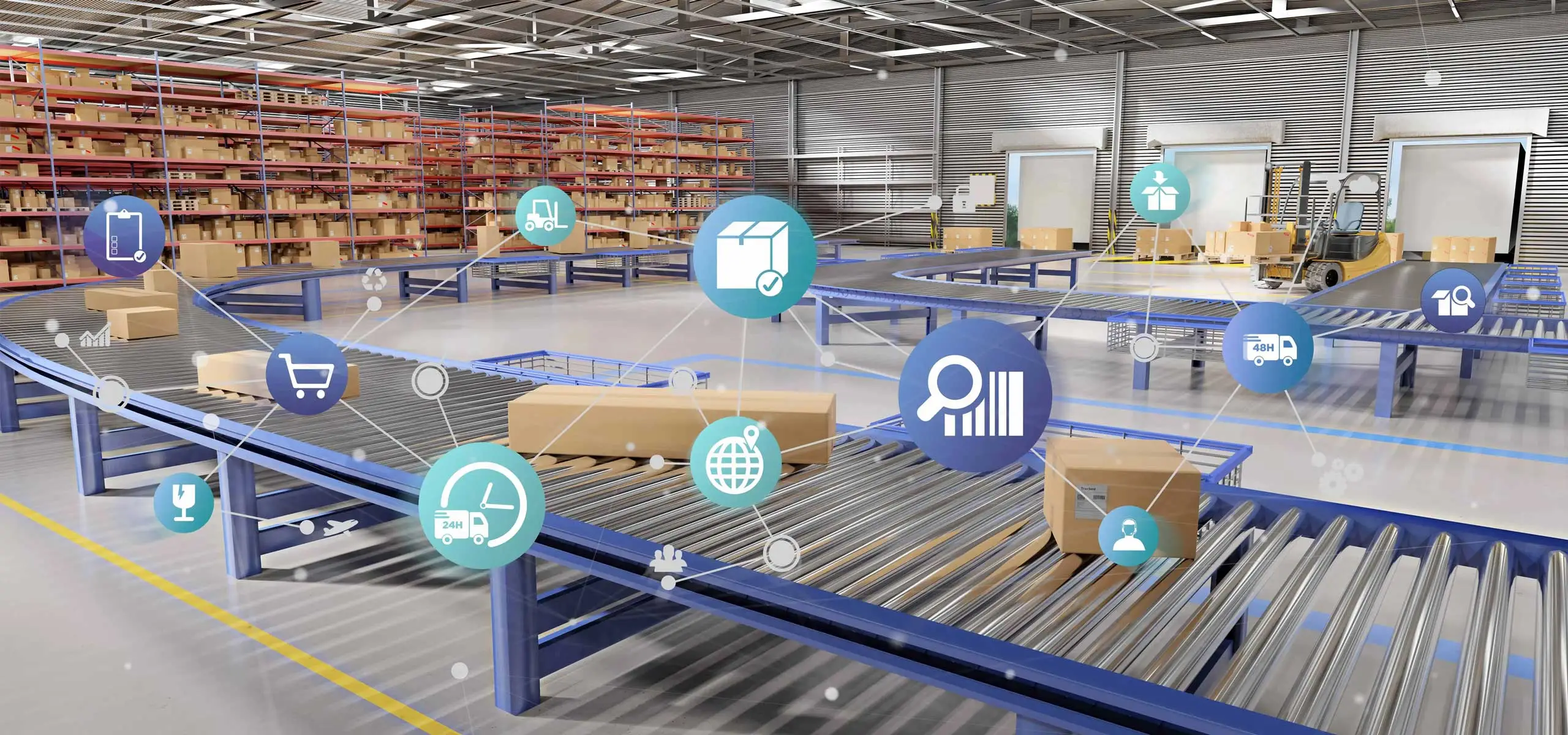Fulfillment refers to the process of completing customer orders and is a critical part of e-commerce. This process includes storing products, receiving orders, packaging, and finally delivering them to the customer. An effective fulfillment process not only enhances customer satisfaction but also improves operational efficiency for businesses. Fulfillment that is carried out quickly and accurately provides a competitive advantage and strengthens brand loyalty. With advancements in technology and automation solutions, the fulfillment process has further improved, offering significant benefits to businesses.
All of these are crucial for a healthy e-commerce operation. In this newsletter, we will discuss what fulfillment is, how a healthy fulfillment service is conducted, and the advantages of obtaining fulfillment services for businesses.
Table of Contents
What is fulfillment?
Fulfillment is a service in the e-commerce and retail sectors that covers all processes from receiving customer orders to preparing and packaging products, and finally delivering them to the customer. This process includes steps such as product storage, inventory management, order picking, packaging, and shipping. The goal is to ensure that orders are delivered accurately and on time, maximizing customer satisfaction. An effective fulfillment system provides businesses with operational efficiency and increases customer loyalty. Additionally, fulfillment services help companies optimize their logistics and distribution processes, reducing costs and gaining a competitive advantage.
How is fulfillment done?
Fulfillment is a complex process that involves a series of steps to complete customer orders efficiently and effectively. In the e-commerce or retail sector, fulfillment includes several operational steps to ensure customers receive their orders fully and on time. These processes are not limited to picking products from the warehouse and shipping them to the customer; they also include storage, inventory management, order processing, packaging, shipping, and post-delivery services.
1. Inventory management and storage:
Products are stored in the warehouse to be ready for orders. They are organized according to categories and demand, and stock levels are regularly monitored. This organization ensures products can be located quickly and accurately.
2. Receiving the order:
Orders placed by customers are received through e-commerce platforms or physical stores and processed in the system. Order details and customer information are recorded and verified.
3. Order picking:
Warehouse staff or automated systems pick the ordered products from designated locations. Careful checks are made to ensure orders are accurate and complete. It’s essential that products are selected correctly and without errors.
4. Packaging:
The picked products are carefully packaged using suitable materials to prevent damage during shipping. Extra protection is provided for fragile or sensitive items, and necessary labels are applied. If a specific brand requires customized packaging or labeling, it is done accordingly.
5. Shipping and logistics:
Packages are prepared for handover to courier companies. Shipping documents are prepared, tracking numbers are created, and the packages are dispatched using the most efficient and cost-effective shipping method.
6. Delivery and tracking:
The packages are tracked to ensure they reach the customer on time and undamaged. Customers are informed about the delivery status, and customer service support is provided if necessary.
7. Return and exchange processes:
Return and exchange processes are managed to ensure customer satisfaction. Returned products are inspected and restocked or processed as appropriate.
Each of these steps directly impacts the customer experience. An effective and efficient fulfillment process ensures orders are delivered accurately, completely, and on time, enhancing customer satisfaction. Additionally, it offers businesses significant advantages in operational efficiency and cost control. The fulfillment process can be made more efficient with the integration of automation technologies and software. Moreover, proper inventory management, quality packaging, and partnering with reliable logistics providers are critical for improving customer satisfaction.
What are the Advantages of Fulfillment
There are many advantages that fulfillment services provide to businesses. Utilizing fulfillment services helps businesses improve operational efficiency, reduce costs, ensure customer satisfaction, and stand out in market competition. This, in turn, enables businesses to achieve sustainable growth and success. The most prominent advantages of using fulfillment services are as follows:
Operational efficiency: Fulfillment services optimize operational processes such as order processing, packaging, and shipping, thereby increasing efficiency. This allows businesses to focus more on their core activities.
Cost savings: Fulfillment centers reduce costs by leveraging economies of scale through high-volume operations. Expenses related to storage, labor, and shipping become more economical through shared services.
Fast and reliable delivery: Professional fulfillment services ensure products reach customers quickly and reliably, thanks to extensive logistics networks and strategically located warehouses. This enhances customer satisfaction and increases the likelihood of repeat purchases.
Flexibility and scalability: Fulfillment services can quickly respond to demand fluctuations (e.g., holiday seasons or special campaigns). They have the necessary infrastructure and resources to accommodate increasing order volumes.
Customer satisfaction and loyalty: Timely and accurate delivery boosts customer satisfaction and increases the likelihood of repeat purchases. Well-managed return and exchange processes are also critical for maintaining customer satisfaction.
Technological infrastructure and efficiency: By using advanced software and tracking systems, fulfillment services offer comprehensive solutions in areas like inventory management, order tracking, and performance analytics. This technological infrastructure helps businesses make more informed decisions.
Focus and resource management: With fulfillment services, businesses can minimize the time and resources dedicated to logistics and operational processes. This allows them to focus more on strategic areas such as marketing, product development, and customer service.
Access to international markets: Fulfillment services make it easier for businesses to enter global markets by leveraging their expertise in international shipping and customs procedures, enabling businesses to reach a broader customer base.
Inventory management and stock control: Effective inventory management ensures that stock levels are accurately and consistently monitored, preventing issues like overstocking or stock shortages.
Eco-friendly practices: Some fulfillment services offer environmentally friendly packaging materials and sustainable practices, helping businesses reduce their environmental footprint.
These advantages help businesses enhance customer satisfaction, ensure operational efficiency, and keep costs under control. As a result, businesses increase their chances of growth and success.
At fiCommerce, we provide end-to-end fulfillment services for e-commerce businesses and manage their e-commerce operations. You can contact us for more detailed information about our fulfillment services.





